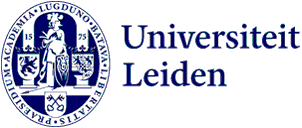
Introducing: Shiru Lim
Shiru Lim has been working at the Institute of History as an assistant professor since August 1, 2023. Below she introduces herself.
I grew up in Singapore, a small and odd place I’ve come to realise that many have heard of but know little about. A lot of the rumours are admittedly true, but, before anyone asks (again), the tl;dr version of the chewing gum business is: consumption—yes; distribution—no; littering—heavy fine, chewing gum or not. Draconian? Yes.
When I moved out, I ended up in somewhere equally congested, English-speaking, three-pin-plug-using, and left-hand-side-driving: London. There I read for my BA in History at the School of Slavonic and East European Studies (SSEES) at University College London (UCL). It was also there that I learned Russian and took the opportunity to spend some time in St. Petersburg—a prospect that is now, inconveniently for an historian of the Russian Empire, sadly unfeasible.
After a year at Cambridge I returned to UCL for my PhD, based this time not at SSEES but at History. None of these institutional movements during my years as a graduate student was particularly radical, but they did mean that my primary intellectual milieus were the centres for the study of history of political thought at London and Cambridge, and both became immensely important for my intellectual, social, and political life. My research interests still reflect my mixed formation in intellectual history and Slavonic studies. Among other projects, I’m currently completing my first monograph, Philosophy & Government in Enlightenment Europe: Frederick II, Catherine II, and the philosophes. It’s a book that tries to cast an unfamiliar light on familiar figures, pulling such canonical figures as these monarchs and authors into the orbit of global intellectual as well as new imperial history; its action is set in places as far-flung as a printer-publisher’s office in The Hague and a boat on the Kazanka river. At heart, my concern is the problem of philosophic government: the problem of how intellectuals and the state, the realms of the intellectual and the political, ought to relate to one another.

London and Leiden, of course, are but two train rides apart. But the route I took from there to here was more than a little circuitous. After a year in Florence as a Max Weber Fellow at the European University Institute, I spent two years at the (now-defunct) Lichtenberg-Kolleg in Göttingen—my ‘pandemic fellowship’—and then another two at the Aarhus Institute of Advanced Studies in Denmark, where, true to stereotype, they do indeed furnish university offices with designer lamps. Like many millennial academics, I’m indelibly shaped by my peripatetic years in the academic precariat.
Luckily, I’ve always had many ways to distract myself. From February to September, I’m bound by the rhythm of the road cycling calendar, and the opportunity to spectate at the plethora of bike races in the Low Countries is one of the reasons I’m delighted to have moved here. And, partly as a result of having lived in two of the most food-obsessed countries in the world—Italy and, of course, Singapore—I, too, cannot resist undertaking projects in the kitchen, of varying levels of tedium and ambition. When will I make garnaalkroketten or tompouce, I hear you ask? Well, perhaps it’s time I expanded my repertoire. Insider knowledge, needless to say, is very much welcome.
